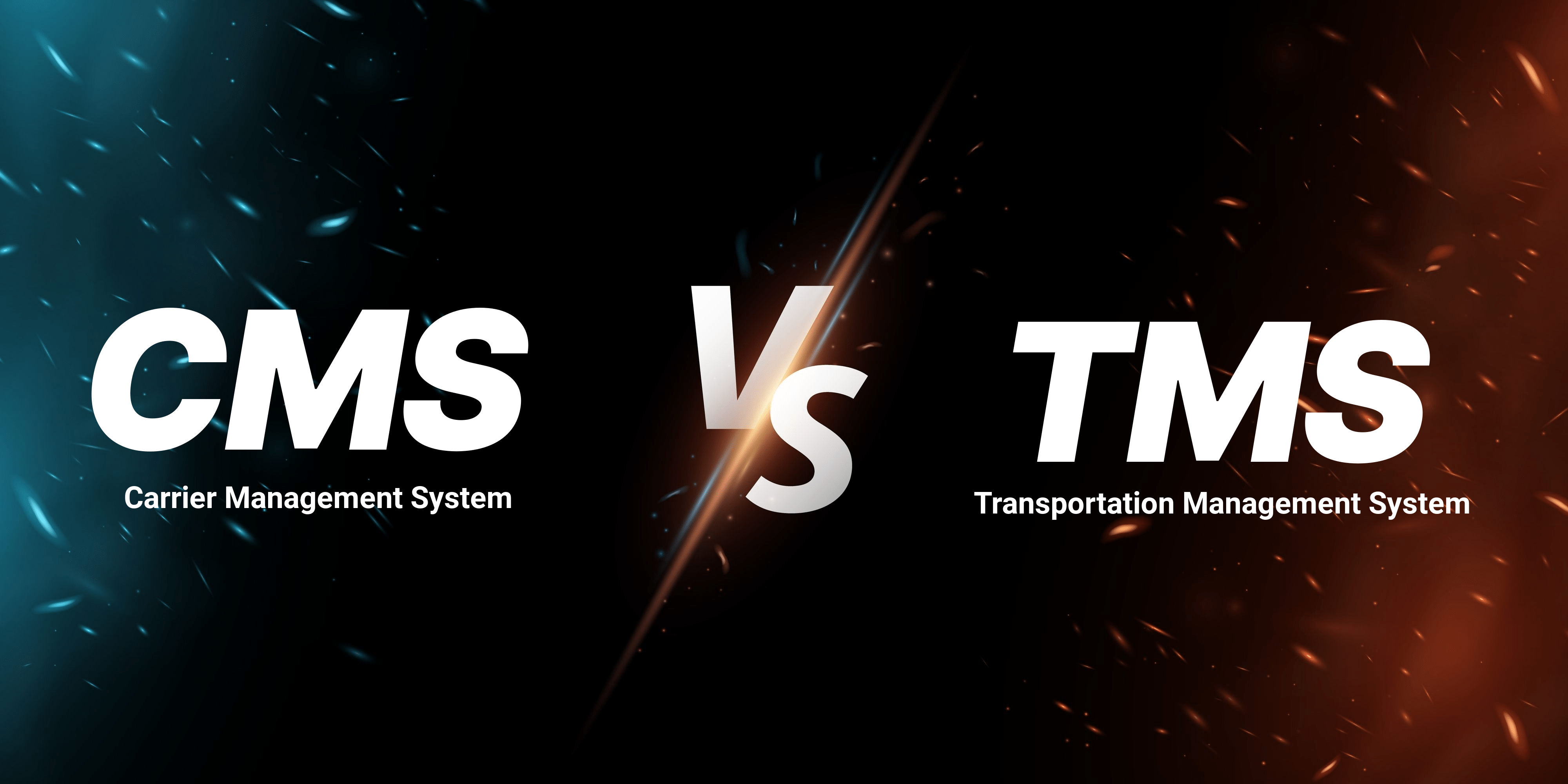Comparing Freight Platforms
A Carrier Management System(CMS) and a Transportation Management System(TMS) are both software solutions used in logistics and transportation management. Ultimately, serving different primary functions and target distinct aspects of the supply chain and transportation process. Here’s a breakdown of the key differences between the freight platforms:

Carrier Management System (CMS)
Focus:
A CMS primary focus is on managing and maintaining relationships with carriers. For example, freight carriers, trucking companies, shipping partners, and other transportation services.
Functionality:
CMS tools help organizations select, onboard, and evaluate carriers. They often include features for managing carrier contracts, tracking carrier performance, and ensuring compliance with carrier agreements.
Users:
Carrier management systems are typically used by logistics and procurement professionals. A CMS platform helps manage carrier relationships, negotiate contracts, and ensures carrier performance meets expectations.
Goals:
The main goal of a CMS is to optimize carrier relationships, negotiate favourable rates, and ensure compliance with service agreements. Additionally, one can also monitor carrier performance to enhance the efficiency and reliability for transportation operations.
Transportation Management System(TMS)
Focus:
A TMS, is a broader system designed to manage and optimize the entire transportation and logistics process. It encompasses functions related to planning, execution, monitoring, and optimization of shipments and transportation operations.
Functionality:
TMS tools offer a wide range of functionalities. Specifically like route planning, load optimization, order management, shipment tracking, freight audit, and carrier selection. These systems often integrate with various carriers and support multiple transportation modes.
Users:
TMS is used by supply chain managers, transportation planners, logistics coordinators, and other professionals. They are mainly involved in overseeing and optimizing transportation and logistics operations.
Goals:
The primary goal of a TMS is to streamline transportation operations. This is done by reducing costs, improving visibility into the supply chain, optimizing routes, enhancing customer service.
In summary, while both Carrier Management Systems and Transportation Management Systems are essential components of effective logistics management. A CMS primarily focuses on carrier relationships and performance, whereas a TMS provides a more comprehensive suite of tools to manage and optimize the entire transportation and logistics process. Organizations often use both systems in tandem to achieve the best results in their supply chain operations.
To discover if a freight platform is right for your shipping needs, try FreightNav.
Or to learn more on freight platforms visit our blog on Online Freight: Mastering Supply Chain

